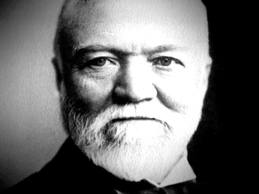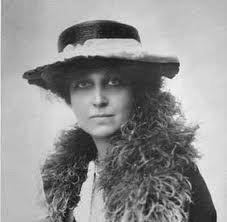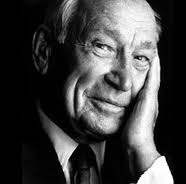 A few weeks ago I had the honor and privilege of having breakfast with one of my community’s iconic philanthropists. His family name is legendary around here. They have contributed lots of money to a number of different non-profit organizations, and those who don’t receive any support from this family pursue them like a dog looking for a lost bone.
A few weeks ago I had the honor and privilege of having breakfast with one of my community’s iconic philanthropists. His family name is legendary around here. They have contributed lots of money to a number of different non-profit organizations, and those who don’t receive any support from this family pursue them like a dog looking for a lost bone.
During our breakfast meeting, he shared a concern that I’ve heard many non-profit people express over the last 12 years that I’ve worked and lived in this community:
Where are the philanthropists and non-profit board volunteers of tomorrow?
As has been the case in most communities for as long as anyone can remember, there is a small circle of very influential people who own businesses, employ lots of people, possess a fair amount of wealth, sit on non-profit boards, and influence policymakers and opinion-shapers.
This small group of very influential people is getting older and their numbers are dwindling. While the circle always seemed to replenish itself in the past, there is this feeling that we now live in different times. Many of the non-profit people in my community with whom I speak are concerned that the next generation isn’t apparent or obvious. I even see some agencies starting to recruit the next generation from the current of circle of philanthropists because they’re not sure what the future looks like and this is as good of a strategy as anyone can think of.
 My breakfast partner weighed in with his opinion, and I found myself enlightened and frightened all at the same time.
My breakfast partner weighed in with his opinion, and I found myself enlightened and frightened all at the same time.
He believes that globalization of our economy is at the root of this trend.
The old economic paradigm produced locally owned business people who amassed wealth and influence. They lived locally. They employed their neighbors and friends. They were able to see firsthand and comprehend the idea of “community need,” and it was in their personal and business interests to invest back into the community.
The new economic paradigm aggregates business in the hands of large multinational corporations that play on a global stage. As a result, our community gets “big box stores” rather than locally owned and controlled businesses. The decision-makers for these very large companies don’t live here. In fact, many of these corporations are located in large markets like Chicago, New York and Los Angeles. Or even more challenging, they are located overseas and their idea of “philanthropy” can be a little different from ours for cultural reasons.
In the opinion of my breakfast partner, the effect of globalization on the non-profit sector is and will be devastating!
He believes that for communities that are not major cities, the days of a small inner circle of influential philanthropists may be over.
When there isn’t a small group of wealthy business owners who live locally and are motivated by personal and business interests to participate in philanthropic activities, then he hypothesized that charitable giving will get tighter and non-profit mergers aren’t far down the road.
 Finally, he believes this trend is most devastating inside of the non-profit board room. He sees many well-intentioned volunteers agreeing to do their part and serve on non-profit boards, but he sees these individuals lacking the financial resources, social networks and business acumen necessary to fuel an effective non-profit sector.
Finally, he believes this trend is most devastating inside of the non-profit board room. He sees many well-intentioned volunteers agreeing to do their part and serve on non-profit boards, but he sees these individuals lacking the financial resources, social networks and business acumen necessary to fuel an effective non-profit sector.
In the final analysis, he thinks the non-profit sector in smaller communities will be radically restructured in the next decade as a result of economic globalization trends.
I think that I agree. It is very possible that this economic trend will be what fuels non-profit mergers and acquisitions. It will also likely re-shape board development and resource development best practices.
As breakfast came to an end and we said our goodbyes, I was left with one thought that is more than two millennia ago by the Greek philosopher Heraclitus of Ephesus:
“The only constant is change.”
My conclusion? We can sit around our non-profit boardroom tables and lament change. Or we can recognize the challenges and adjust to the headwinds.
I say . . . Upward and onward! I have faith that the non-profit sector can and will adapt and evolve. We always have and I suspect we always will; however, let’s not drag our feet and let’s a move on it because “change” is coming fast.
So, I’m curious about what you think about this one philanthropist’s opinion about the effects of globalization? Are you having the same conversations in your community? What do you see other non-profits doing to adjust to what they perceive as winds of change? What are you doing? Please scroll down and share your thoughts in the comment box. We can all learn from each other.
Here’s to your health!
Erik Anderson
Founder & President, The Healthy Non-Profit LLC
www.thehealthynonprofit.com
erik@thehealthynonprofit.com
http://twitter.com/#!/eanderson847
http://www.facebook.com/eanderson847
http://www.linkedin.com/in/erikanderson847
